Workshops
What? High-level seminars focused on the concrete challenges facing American Jewry.
Who? Jewish leaders—rabbis, educators, scholars, journalists, government officials, and engaged lay leaders—across North America.
When? Either Sunday to Tuesday or Shabbat retreats at several points during the first half of 2015.
Stipends: Participants will receive a stipend ranging from $500-$1500.
Applications are now closed.
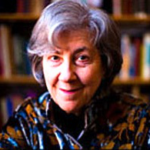 American Jewish Literature
American Jewish Literature
Dates: March 15-17, 2015
Instructor: Ruth Wisse
Location: New York City
The Jew in America has enjoyed unprecedented success as an equal member of a free and democratic nation. Jews have risen in the arts, in politics, in business, and in much else. But they have also risen out of traditional life, first confronting modernity as aliens and then being swallowed in whole or in part by the rewards of assimilated American life.
It is this predicament—that of the anxious immigrant and the hesitant or guilty modern—that has colored the great works of American Jewish literature by authors such as Saul Bellow. Ruth Wisse, the dean of the study of Jewish literature, will explore what the Jewish novel can teach us about the modern Jewish-American condition.
 A New Pro-Israel Foreign Policy
A New Pro-Israel Foreign Policy
Dates: March 22-24, 2015
Instructor: Elliott Abrams
Location: New York City
A simple glance at the newspaper will reveal a series of strains on the America-Israel relationship: a mutual lack of trust, American sneering about Israeli leaders (and vice-versa), and serious disagreements on policy priorities, especially with regard to Iran and the Palestinians. At the same time, we are continually reassured that the bond between the countries is unbreakable, essential, and healthy. For the sake of America, Israel, and world Jewry, is it time to re-think the contours of that relationship?
Elliott Abrams, the recent author of Tested by Zion, a memoir of his experience working on Middle East policy in the George W. Bush administration, will lead a seminar on how to improve the America-Israel relationship. Giving full consideration to America’s and Israel’s compelling and distinct interests, we will ask the tough questions about how America and Israel should approach a volatile and dangerous Middle East.
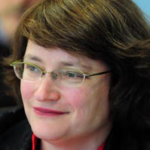 Jewish Philosophy in America
Jewish Philosophy in America
Dates: April 12-14, 2015
Instructor: Leora Batnitzky
Location: New York City
Most courses on modern Jewish philosophy become courses on the tension, in 19th-century Germany, between the liberal, Protestant understanding of religion as the private faith of the heart and the traditional understanding of Judaism as the practices defining the daily lives of the Jewish community. In America, Jews have found a country in which religious communities flourish and in which Jews are more than merely tolerated. Jewish philosophy in America has therefore been characterized by a focus on other problems: the crisis of meaning caused by modernity and the possibility of assimilation.
With Leora Batnitzky, professor at Princeton and the author of How Judaism Became a Religion, we will explore alternative accounts of the role of Judaism and the Jewish people in the modern world, and the purpose of Jewish existence in 20th-century America. Special attention will be paid to the ideas of philosophers Leo Strauss, Joseph Soloveitchik, and Mordecai Kaplan.
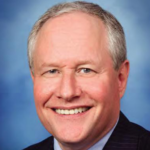 Liberalism, Conservatism, and the Jews
Liberalism, Conservatism, and the Jews
Dates: April 19-21, 2015
Instructor: William Kristol
Location: New York City
Most Jews have strong political beliefs—about the role of government, the uses of power, the meaning of social justice, and the proper place of religion in political life. What, if anything, do these positions have to do with Judaism’s teachings, or with what’s best for the Jews? How should American Jews approach electoral politics and the pressing policy questions of today?
Aided by prominent intellectual and political theorist William Kristol, we will explore the contemporary alternatives of liberalism and conservatism and their foundations in ideas of freedom, equality, and rights. Digging deeper, we will analyze Jewish positions on these issues of principle and policy. We will think through just how American Jews should position themselves, and have a chance to formulate for ourselves a Jewish political persuasion that faces the challenges of the times.
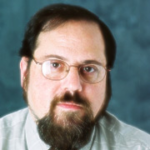 The Condition of American Judaism:
The Condition of American Judaism:
The Denominations and Beyond
Dates: May 15-17, 2015
Instructor: Jack Wertheimer
Location: Shabbat in the New York City Area
In October 2013, the Pew Research Center released its “Portrait of Jewish Americans.” What followed was a grim picture of declining Jewish identification—shrinking denominations and the prevalence of intermarriage. Two-thirds of Jews no longer belonged to a synagogue, and one-third had a Christmas tree in their home the year prior. Alienation from Jewish life—its rituals and its institutions—was strongest among the young. While some have found silver linings, the general reaction was shock: Many American Jews started to wonder at the viability of Diaspora Jewish life in this age of tolerance and assimilation.
Jack Wertheimer of the Jewish Theological Seminary has been studying the habits and beliefs of American Jewry with peerless depth for decades. With the aid of his wisdom and experience, we will inquire into the causes and meaning of what Pew measured. What are the core challenges? Which institutions seem to work? What is the strategy for the preservation of Jewish identity and Jewish life on these shores?
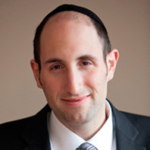 Jews and Christians:
Jews and Christians:
Morality, Theology, Politics
Dates: May 29-31, 2015
Instructors: Meir Soloveichik
Location: Shabbat in the New York City Area
American life has been shaped and inhabited by Christians and Jews from its founding. In a variety of ways, Christianity permeates our ideas of freedom and responsibility, our understanding of religion, our cultural debates, and even some government policy. Yet this has not been an obstacle to Jewish flourishing. Indeed, on issues of Israel’s security and strengthening traditional morality, Christians have often been better friends of Jewish ideas and Jewish interests than many Jews.
Rabbi Meir Soloveichik will lead us through the various dimensions of the Jewish-Christian relationship—moral, theological, and political. On which issues should Jews approach Christians as friends and allies? In what ways will Christians and Jews forever be strangers? How can we motivate other Jews to make meaningful practical partnerships with our Christian neighbors?
Please email info@tikvahworkshops.org with any questions.
